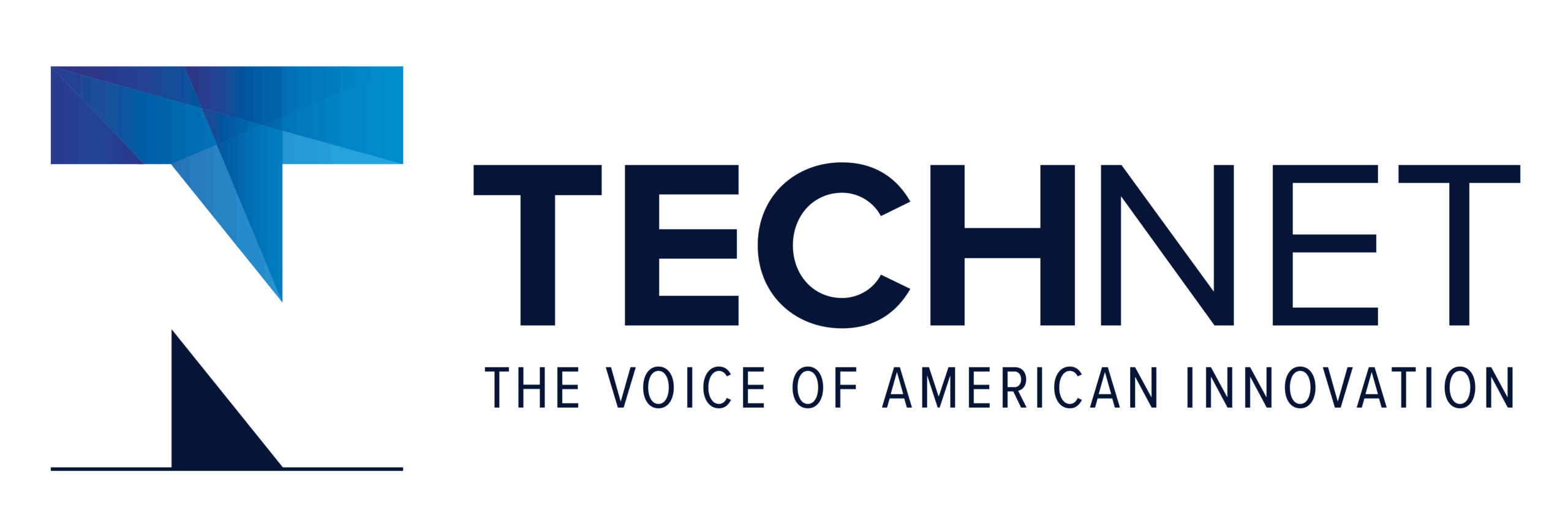Startups, including venture-backed startups, are disproportionately responsible for the innovations that drive economic growth and job creation in the United States. In fact, startups are responsible for most of the net new U.S. jobs created since 1997. The venture capital business model is based on investors taking risks and making investments in early to later-stage startups, in order to accelerate innovation and the startups’ growth. These long-term capital investments provide young companies with the time and resources they need to build products, develop new ideas, hire personnel, and expand, and have fueled extraordinary innovation in the United States for decades.
TechNet advances a policy agenda that supports the American innovation ecosystem, which includes venture capital firms and startups, whose success will determine the country’s future competitiveness. To thrive, startups need access to capital and markets, innovation, and talent.
Access to Capital and Markets
Startups thrive when they have access to capital and markets and operate within a balanced regulatory regime that promotes innovation and does not restrict access to exit opportunities. Startups typically operate in a loss position for several years, deliberately choosing instead to invest heavily in growth activities such as research and hiring and necessarily generating tax assets. Federal policymakers can improve the capital allocation process for existing and new startups through targeted reforms to regulations and tax laws.
The following policies are essential to promoting the startup ecosystem:
- Tax policies that promote growth and innovation and do not hamper long-term investment, including tax policies that incentivize stock ownership opportunities for workers at startups and other employers by allowing them to defer the tax associated with the exercise of their personal equity until they sell the underlying shares and thus have the cash to pay the tax, instead of taxing these options upon vesting. TechNet’s tax principles can be found here.
- Federal policies that reduce unnecessary barriers for private companies opting to go public and stay public, and reject efforts to unnecessarily restrict these companies’ access to public equity markets.
- Federal policies that promote competition and reduce unnecessary barriers to mergers and acquisitions.
- A regulatory regime that recognizes mergers and acquisitions are essential to the thriving startup ecosystem.
- A regulatory regime that allowsconsumers to determine the success of companies, rather than the government.
- Efforts by federal agencies to appropriately enforce long-standing consumer protection laws.
- An approach to evaluating existing antitrust laws thatpromotes consumer welfare and does not pose risks to consumer privacy, cybersecurity, or U.S. national security interests.
- Reducing bias against acquisitions by large companies to avoid unintended, long-term consequences on investment and innovation.
Access to Innovation
Public policy should help startups and small businesses move projects efficiently from the idea phase to the new business phase. Additionally, the federal government should adopt public policies that encourage small businesses to adopt technologies to grow and scale.
TechNet supports the following policies:
- Federal efforts to create regional technology hubs where federal resources could catalyze regional innovation and opportunity and bolster competitive advantages in emerging technologies.
- Federal tax and budget policy that renews investments in private sector research and development (R&D) to ignite innovation, create jobs, and increase our global competitiveness.
- The exploration of new ownership models, including co-ownership between inventors and universities.
- Patent policies that level the playing field to promote innovation in all sectors of the economy and minimize frivolous litigation. TechNet’s principles on intellectual property and patent reform can be found here.
- Procurement reform at the local, state, and federal levels that acknowledges the evolving technology landscape and enables governments to purchase and utilize innovative and secure products on a technology-neutral basis.
Access to Talent
TechNet supports efforts to grow and strengthen America’s talent pipeline by ensuring equitable access to digital skills training across occupations; encouraging and supporting American students to pursue STEM fields, particularly computer science education; and reforming our immigration policies to attract and retain the best global talent.
- The modern American workforce requires a flexible employment environment that allows workers to find opportunities that best match their skills, interests, and availability. TechNet’s principles on the future of work can be found here.
- An educated, diverse American workforce is the lifeblood of the innovation economy. More significant federal investments in education and the workforce will help all American students and workers succeed in a global, interconnected, and technology-driven economy. TechNet’s principles on education can be found here.
- The world’s most talented innovators and entrepreneurs should be able to stay in the United States and contribute to oureconomy, rather than be forced out to start businesses in competitor nations. To that end, TechNet supports comprehensive immigration reform, and our principles on immigration can be found here.



